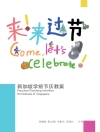Critical thinking and online reading need to go hand in hand—but they often don’t. Students click, swipe, and believe because they don’t know how to do otherwise. At times, so do we. And that’s a problem. Fighting Fake News combats this challenge by helping you model how to read, myth-bust, truth-test, and respond in ways that lead to wisdom rather than reactivity.
No matter what content you teach, the lessons showcased here provide engaging, collaborative reading and discussion experiences so students can:
- Notice how teacher and peers read digital content, to be mindful of how various reading pathways influence perception
- Identify the author background, the website sponsor, and other evidence that help set a piece in context
- Stress-test the facts by evaluating news sources, reading laterally, and other critical reading strategies
- Use ‘Reader’s Rules of Notice’ to learn to identify common rhetorical devices used to influence the reader
- Be aware of how for-profit social media platforms feed on our responses to narrow rather than widen our reading landscape
We are still in the wild west era of the digital age, scrambling to impart a safer, ethical framework for evaluating information. Thankfully, it distills to one mission: teach students (and ourselves) how to think critically, and we will forever have the tools to fight fake news.
Содержание
Part 1: So Much at Stake
Chapter 1: The Case for Teaching Critical Reading and Fighting Fake News
Chapter 2: Fake News: What It Is, Why it Works, and What We Can Start Doing About It
Part II: Lessons for Critical Reading and Fighting Fake News
Chapter 3: Lessons for Getting Started: Knowing Your Own Mind
Chapter 4: Lessons Using ‘Rules of Notice’ in Online Reading
Chapter 5: Lessons for Teaching Point of View in Digital Media
Chapter 6: Lessons for Examining News, Nonfiction, and Digital Texts through Literary Lenses
Chapter 7: Lessons for Teaching Students to Evaluate Evidence and Research
Conclusion: Some Final Words
Об авторе
Deborah Appleman is Professor of Educational Studies and Director of the Summer Writing Program at Carleton College in Northfield, Minnesota. Her primary interests include adolescent response to literature, multicultural literature, and the teaching of literary theory to high school students. A high school English teacher for nine years, Deborah works weekly in urban and suburban high schools.












